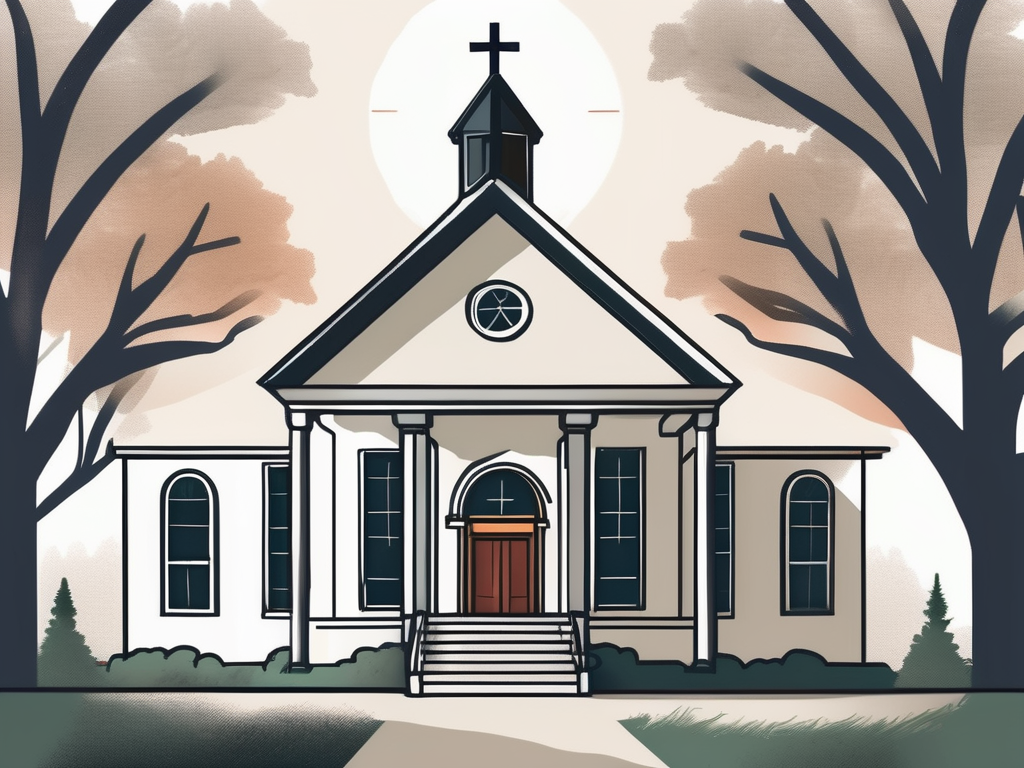Saint Elizabeth Ann Seton was a remarkable woman whose life and legacy continue to inspire people around the world. From her early years to her canonization as a saint, her journey is a testament to faith, resilience, and dedication. Let’s explore the different aspects of her life and the impact she had on Catholicism and society.
Early Life of Elizabeth Ann Seton
Elizabeth Ann Seton was born into a loving and devout family, her childhood shaped by a strong foundation of faith. Growing up, she experienced the warmth and support of her family, which helped shape her character and values.
Her parents, Richard and Catherine Charlton, instilled in her a deep sense of love for God and a commitment to serving others. They taught her the importance of prayer, compassion, and generosity, which would become guiding principles in her life.
Elizabeth’s childhood was filled with moments of joy and laughter. She had a close bond with her siblings and cherished the time they spent together, whether it was playing games in the backyard or sharing stories around the dinner table.
As she grew older, Elizabeth developed a thirst for knowledge that was insatiable. She was a voracious reader and would spend hours immersed in books, eager to learn about the world beyond her own. Her parents recognized her intellectual curiosity and encouraged her to pursue her education.
Elizabeth’s education played a crucial role in her development. She attended a prestigious academy where she excelled in her studies, particularly in literature and history. Her teachers recognized her exceptional intellect and nurtured her love for learning.
It was during her time at the academy that Elizabeth’s passion for Catholic education began to take shape. She saw firsthand the transformative power of education and how it could empower individuals to lead meaningful lives. Inspired by this, she made a vow to dedicate her life to the pursuit of knowledge and the education of others.
Elizabeth’s journey as a pioneer in Catholic education was just beginning. Little did she know that her unwavering commitment to learning and her deep faith would lead her to establish the first Catholic school in the United States, laying the foundation for a legacy that would impact countless lives.
Spiritual Journey and Conversion to Catholicism
Elizabeth’s spiritual journey was not without its ups and downs. She was initially exposed to various spiritual influences that impacted her outlook on life. From a young age, she was fascinated by the diversity of religious beliefs and practices she encountered. She would spend hours reading about different faiths, attending religious ceremonies, and engaging in deep conversations with people from various religious backgrounds.
As Elizabeth delved deeper into her exploration of spirituality, she found herself drawn to the teachings and rituals of Catholicism. The rich history, the sense of community, and the emphasis on service resonated deeply with her. After much contemplation and soul-searching, she made the life-altering decision to convert to Catholicism.
Her decision to become Catholic brought about profound changes in her life and led her on a path of service and devotion. Elizabeth immersed herself in the teachings of the Church, attending Mass regularly and participating in various Catholic organizations. She found solace and guidance in the sacraments, particularly the Eucharist and the sacrament of reconciliation.
With her newfound faith, Elizabeth’s perspective on life underwent a radical transformation. She began to see the world through the lens of compassion, seeking opportunities to serve others and make a positive impact in her community. Inspired by the examples of saints and religious figures, she dedicated herself to acts of charity, volunteering at local shelters, and organizing fundraisers for various causes.
Elizabeth’s conversion to Catholicism not only shaped her personal life but also had a profound impact on her relationships. Her friends and family witnessed the remarkable change in her character and were inspired by her unwavering faith. They marveled at her ability to find peace and purpose in her spiritual journey and were drawn to the warmth and love she radiated.
Through her Catholic faith, Elizabeth found a sense of belonging and a deeper connection to something greater than herself. The rituals and traditions of the Church provided her with a framework for understanding the complexities of life and navigating its challenges. She found solace in prayer, finding comfort and guidance in moments of doubt or uncertainty.
Elizabeth’s spiritual journey and conversion to Catholicism were not without their challenges. She faced criticism and skepticism from some who questioned her decision and challenged her beliefs. However, she remained steadfast in her faith, relying on the strength she found in her relationship with God and the support of her Catholic community.
As Elizabeth continued on her spiritual journey, she recognized that her conversion was not the end but rather the beginning of a lifelong commitment to grow in her faith. She sought out opportunities for further education and spiritual development, attending retreats, participating in Bible studies, and engaging in theological discussions.
Elizabeth’s story serves as a testament to the transformative power of faith. Her conversion to Catholicism not only brought her closer to God but also inspired those around her to explore their own spiritual paths. Through her acts of service and devotion, she continues to touch the lives of others, reminding them of the profound impact faith can have on one’s journey through life.
Founding of the Sisters of Charity
Driven by her deep conviction and desire to serve others, Elizabeth Ann Seton founded the Sisters of Charity, a religious community dedicated to the care of the poor and the education of children. Elizabeth’s journey towards this noble endeavor was not an easy one, but her unwavering determination and vision propelled her forward.
Elizabeth Ann Seton was born on August 28, 1774, in New York City. She was raised in a devout Episcopalian family and was known for her strong faith from a young age. However, tragedy struck when her husband, William Seton, passed away due to tuberculosis, leaving Elizabeth a widow at the age of 29 with five young children to care for.
Despite her grief and the challenges she faced as a single mother, Elizabeth’s faith remained steadfast. She sought solace in Catholicism and eventually converted to the faith, a decision that would shape the rest of her life. Inspired by the example of religious communities in Europe, Elizabeth felt called to establish a similar community in the United States.
In 1809, Elizabeth founded the Sisters of Charity, becoming the first American-born saint and the founder of the first religious community for women in the United States. The Sisters of Charity focused on serving the poor and marginalized, providing education and healthcare to those in need. Elizabeth’s leadership and dedication to the mission of the Sisters of Charity were instrumental in their growth and impact on society.
Under Elizabeth’s guidance, the Sisters of Charity established numerous schools and orphanages throughout the United States. They provided education to children who otherwise would not have had access to learning opportunities. The Sisters also cared for the sick and dying, particularly during times of epidemics, offering comfort and medical assistance to those in desperate need.
Elizabeth’s legacy continues to be felt today through the countless lives touched by the Sisters of Charity’s compassion and dedication. The Sisters’ work has left an indelible imprint on the Catholic Church and society as a whole. Their commitment to serving others, especially the most vulnerable, serves as an inspiration for people of all faiths and backgrounds.
Elizabeth Ann Seton’s journey from a grieving widow to the founder of a religious community is a testament to the power of faith and the strength of the human spirit. Her unwavering determination to make a difference in the lives of others continues to inspire generations to follow in her footsteps, carrying on the mission of the Sisters of Charity and spreading love and compassion to those in need.
Contributions to Education and Social Work
Elizabeth Ann Seton’s contributions to education were groundbreaking. She believed passionately in the power of education to uplift and empower individuals, particularly those who were marginalized. This belief led her to establish the first Catholic school system in the United States.
Beyond education, Elizabeth’s social initiatives aimed to address the immediate needs of the poor and marginalized in society. Her compassion and tireless efforts helped alleviate suffering and brought hope to those in need. Her work set a benchmark for future social reformers and advocates.
Path to Canonization
The recognition of Elizabeth Ann Seton’s saintly qualities was not immediate. It was through the recognition of miracles attributed to her intercession that the process of canonization was set into motion.
Miracles, believed to be the result of Elizabeth’s intervention from heaven, brought healing and hope to those who were suffering. Through careful examination and scrutiny, these miracles were deemed genuine, culminating in her canonization as the first native-born American saint.
The Life and Legacy of Saint Elizabeth Ann Seton
Saint Elizabeth Ann Seton’s life was one of profound devotion, dedication, and compassion. Her journey from a young girl with a thirst for knowledge to a saintly figure continues to inspire generations.
Her contributions to education, social work, and the Catholic Church have left an enduring legacy, reminding us of the power of faith and the importance of service to others. Elizabeth Ann Seton’s life may have ended, but her impact continues to guide and inspire countless individuals striving to make a difference in the world.












